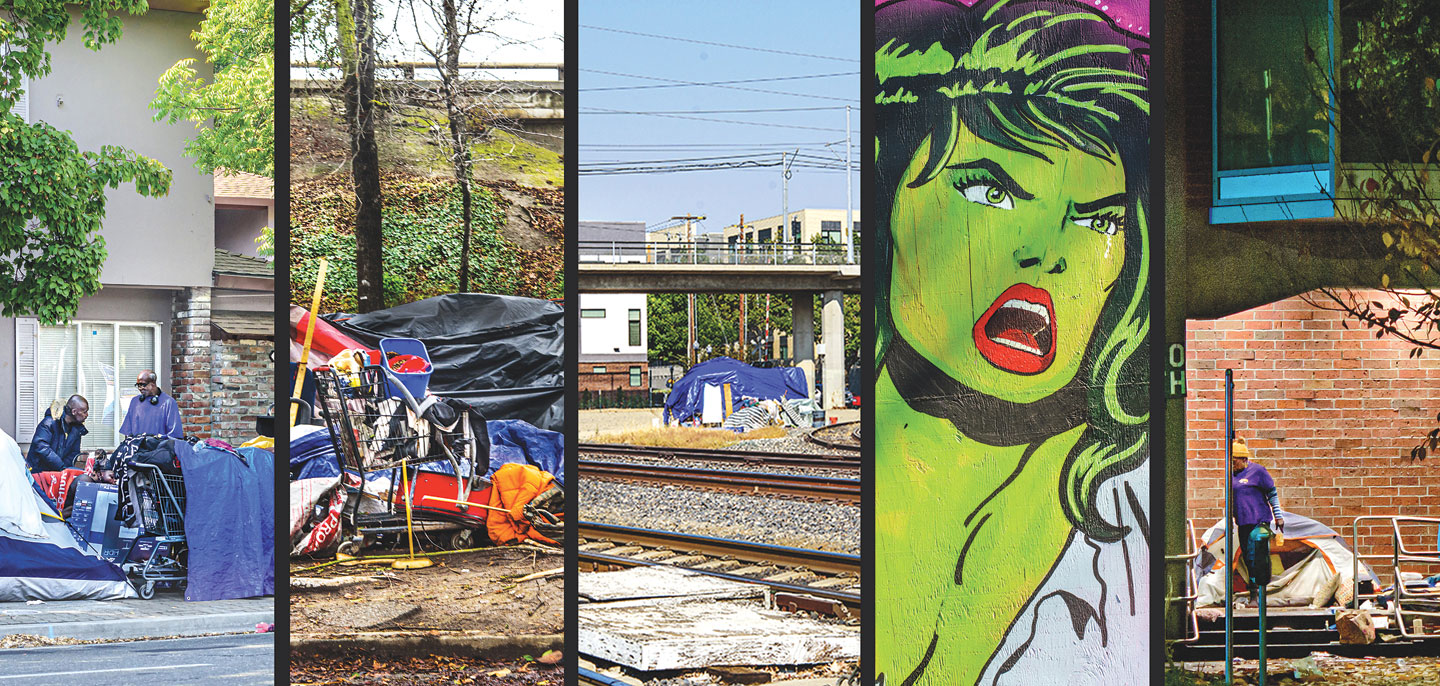No more excuses. No more hiding behind legal interpretations. No more ignoring crime-ridden, third-world conditions in homeless camps around town.
And no more pretending unhoused people are a special class immune from laws.
Mayor Darrell Steinberg and friends at City Hall finally ran out of excuses this summer when the U.S. Supreme Court overturned two cases involving homelessness in Boise, Idaho, and Grants Pass, Oregon.
The court’s majority rejected arguments that homeless people could build camps wherever they wished on public land if cities lacked sufficient shelter space to accommodate everyone.
The decision ended a social experiment across nine western states that allowed indigents to camp on city streets, exempt from local ordinances and personal responsibilities.
In Sacramento, mayhem and suffering were acute. Homeless counts swelled from 2,700 to almost 10,000 during eight years of Steinberg’s administration. The city earned global media recognition for all the wrong reasons.
What happens next? It’s up to voters. A new mayor will replace Steinberg after the November election.
The outcome will help establish whether Sacramento begins a new era of cleaner streets and new treatment opportunities or continues to welcome homeless camps and the chaos that comes with them.
Inside asked the two mayoral candidates, Kevin McCarty and Flojuane Cofer, about their thoughts on the Supreme Court decision. Their responses revealed a gulf.
McCarty worked on homeless remedies as a state assemblymember, including efforts to open Cal Expo as a services site.
He knows nine justices in Washington can’t magically solve Sacramento’s problems. But the city can finally enforce its ordinances while working toward long-term housing and rehabilitation solutions.

“I support the Supreme Court decision to allow cities to enforce prohibitions on homeless encampments,” McCarty says. “We need to use every tool to tackle the problem of homelessness, and this decision gives us another tool.”
Cofer reached the opposite conclusion. As policy director for a public health advocacy group, she believes camps are acceptable if shelters fall short. She also thinks homeless people should reject services they find restrictive or inadequate.
Blaming “the Trump-stacked Supreme Court,” she says the justices “just poured fuel on the fire of our homelessness crisis. Arresting people who have nowhere to go and cycling them in and out of our jails every few days is a costly endless exercise. Our tax dollars would be much better spent on permanent solutions to keep our communities safe.”
But nobody’s talking about jail. I’m not aware of anyone involved with homeless policies who thinks cities can arrest their way out of the problem.
At the same time, every member of the community, regardless of housing status, must consider themselves as citizens subject to laws and ordinances. Or face legal consequences.
No city can function if special groups live by their own rules in parks, on sidewalks, under freeways and along the river. Aside from the health traumas caused by street living, the presence of tent communities means other residents lose access to civic amenities.
To borrow McCarty’s words, now the community has more tools to keep its streets safe while seeking solutions.
For example, San Diego passed an ordinance banning street and sidewalk camping if there are shelter beds available. City officials removed unsafe camps. Shelter capacity expanded.
A similar ordinance was planned for Sacramento City Council’s law and legislation committee—first step for new rules.
But Steinberg removed Councilmember Lisa Kaplan from the committee. Kaplan supported the proposal. The ordinance was shelved. Kaplan was replaced by Caity Maple. Let’s hope the plan resurfaces.
What are homeless rights? Same as housed individuals. Should we carelessly cycle homeless people through jail? No. Does expecting responsibility and lawful compliance by the unhoused equate to criminalizing homelessness? No.
Sacramento must create alternatives for people who lack shelter. The city needs pathways to housing, programs for mental infirmities, and mandated treatment for drug addiction.
Most of all, we need citizens who follow laws.
R.E. Graswich can be reached at regraswich@icloud.com. Follow us on Facebook and Instagram: @insidesacramento.
















